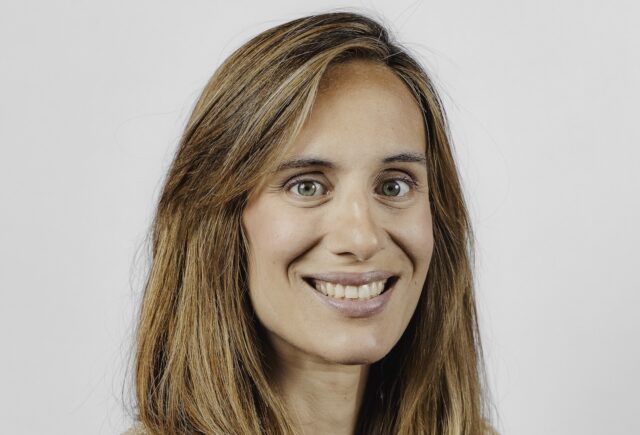The FAIR-La Croix barometer of social finance has revealed a 15% increase in retail solidarity-based savings, with total savings exceeding €30bn.

FAIR, France’s social impact investment association, has partnered with French daily newspaper La Croix to publish the 22nd edition of its Social Finance Barometer, revealing a 15% increase in retail social finance savings over 2023.
The increase of almost €4bn over 12 months, which includes both an increase in retail savings and investments and market appreciation, has brought total solidarity-based retail savings in France to €30.2bn in 2023. This represents 0.5% of household financial savings up from 0.45% in 2022.
The FAIR-La Croix barometer covers three finance channels, which invest into solidarity-based finance products, which FAIR describes as products that invest into companies with a meaningful positive impact on either society or the enviornment. These include solidarity-based savings products provided by banks and mutual insurers, employee savings schemes and direct investment through shares and bonds issued by (unlisted) social enterprises.
Speaking to Impact Investor, Martina Mettgenberg, head of FAIR’s social finance observatory, said that the barometer’s findings were good news for solidarity-based savings and investments, but that greater investment was needed. The observatory analyses and reports on data produced by the organisation’s Finansol label, which is awarded to social finance products that can demonstrate high levels of transparency and social impact.
“People are becoming increasingly aware that their financial choices have the potential to make a positive social and environmental impact, but social finance still represents just 0.5% of the total retail savings market, so there’s a lot more work to be done. We are conducting several studies to try to understand how we can accelerate this market share,” she said.
Market growth
A closer look at the figures reveals employee savings into social enterprises grew 17.6% (€2.7bn) and accounted for 9.5% of total employee savings, compared with 9.4% in 2022 and 8.4% in 2021, attracting between 1.2 and 1.3 million employees across the country.
In the banking and insurance channel, total investment in social impact investment funds reached €4.4bn, an increase of €950m over the year, which included €550m in net investments and a market uplift of €40m. In turn, these funds invested nearly €160m into social enterprises in 2023.
Direct investments have also increased, with social enterprises in FAIR’s network, which includes companies such as Lita.co, Habitat et Humanisme and Fermes en Vie, reporting a net increase in investment of €142m.
90/10 funds
Employee savings into social enterprises are principally made through 90/10 funds, which were introduced via France’s Fabius law in 2001 and reinforced by the 2019 Pacte law, which required every life insurance product to have at least one socially responsible, solidarity-based or green investment unit, and all three from 2022.
Companies in France with more than 50 employees are also obliged by the law to offer 90/10 funds as part of their employee savings schemes, which in turn are required to invest between 5% and 10% of their assets into accredited ‘solidarity-based enterprises of social utility’.
The barometer revealed that savings in 90/10 funds reached €18bn in 2023, compared with €9.7bn in 2019 before the Pacte law came into force, nearly doubling in five years. Investment into these also grew at a faster pace in 2023 (17.6%) than investment into employee savings overall, which grew by 15.7% to a total market size of €187.8bn in 2023.
Mettgenberg said that on average around 7% of assets in 90/10 funds were invested into social enterprises but that this was expected to increase in the coming months following a French parliamentary decision to increase the ceiling to 15%.
“As a result, it will now be possible to increase the share of assets in solidarity-based enterprises and replace 90/10 funds with 85/15 funds, through which up to 15% of assets can be channelled into social and environmental impact,” she said.
Social and environmental impact
Although the size of the combined social finance savings market across all three channels continues to grow year-on-year, direct investment into solidarity-based companies and projects was down 21% from €680m in 2023 to €866m in 2022. In 2021 it was also slightly higher at €690m.
FAIR put this down to the ‘COVID effect’, which it said had led to higher savings rates among French people as well as greater financing needs for social enterprises. The organisation explained that markets and life had since normalised and solidarity-based savings and investments had returned to the trend seen at the end of 2020, with a compound annual growth rate of 12% between 2013 and 2023.
The €680m has been used in 2023 to invest into 1470 projects with a social or environmental impact. This includes support for 65 microfinance institutions, agricultural cooperatives and social enterprises improving access to essential goods and services in developing countries, the creation of 16,000 jobs, the re-housing of 2,100 people, the supply of renewable electricity for 13,000 people and support for 2,600 hectares of organic farming and 180 new farmers.
Mettgenberg said she was confident the positive trend in social finance would continue to be supported by France’s regulatory framework, which she said had been very responsive to social and environmental challenges in terms of increasing the transparency of financial institutions and the products they offered retail investors.
“Now, it’s about increasing consumer awareness to accelerate investment into these social and solidarity-based products,” she added.






